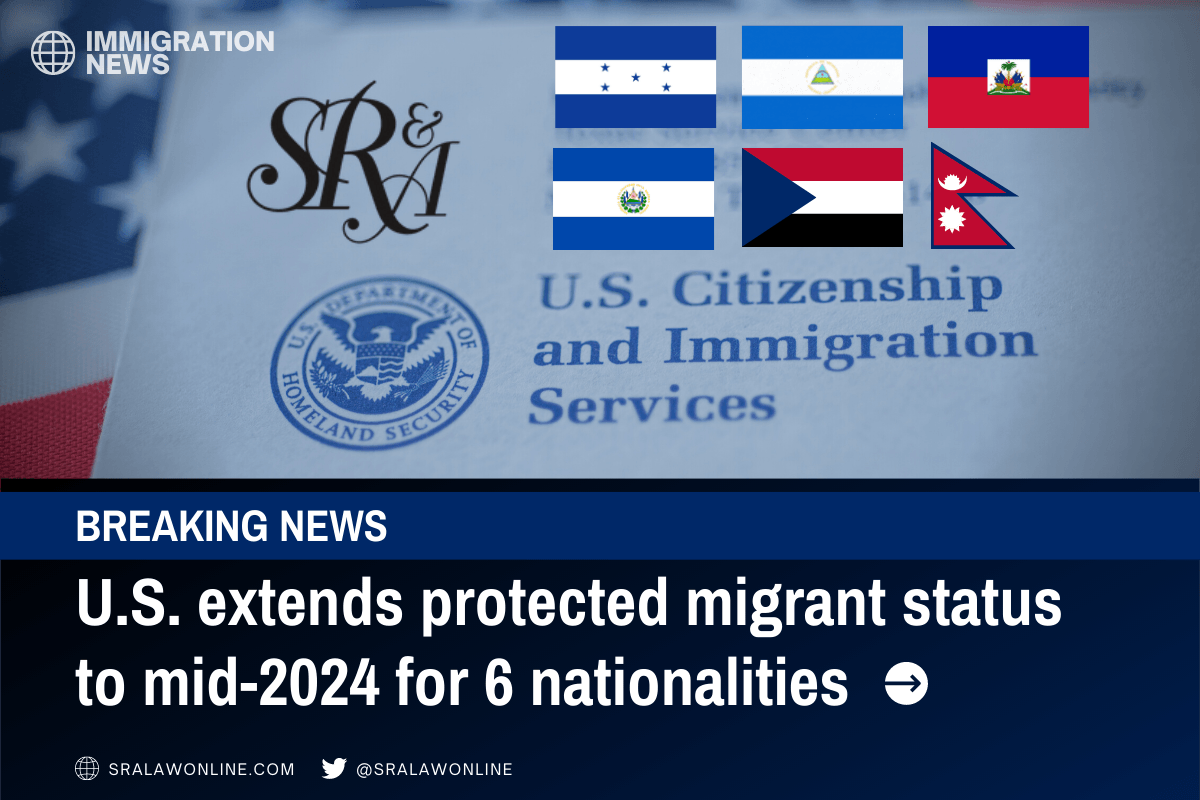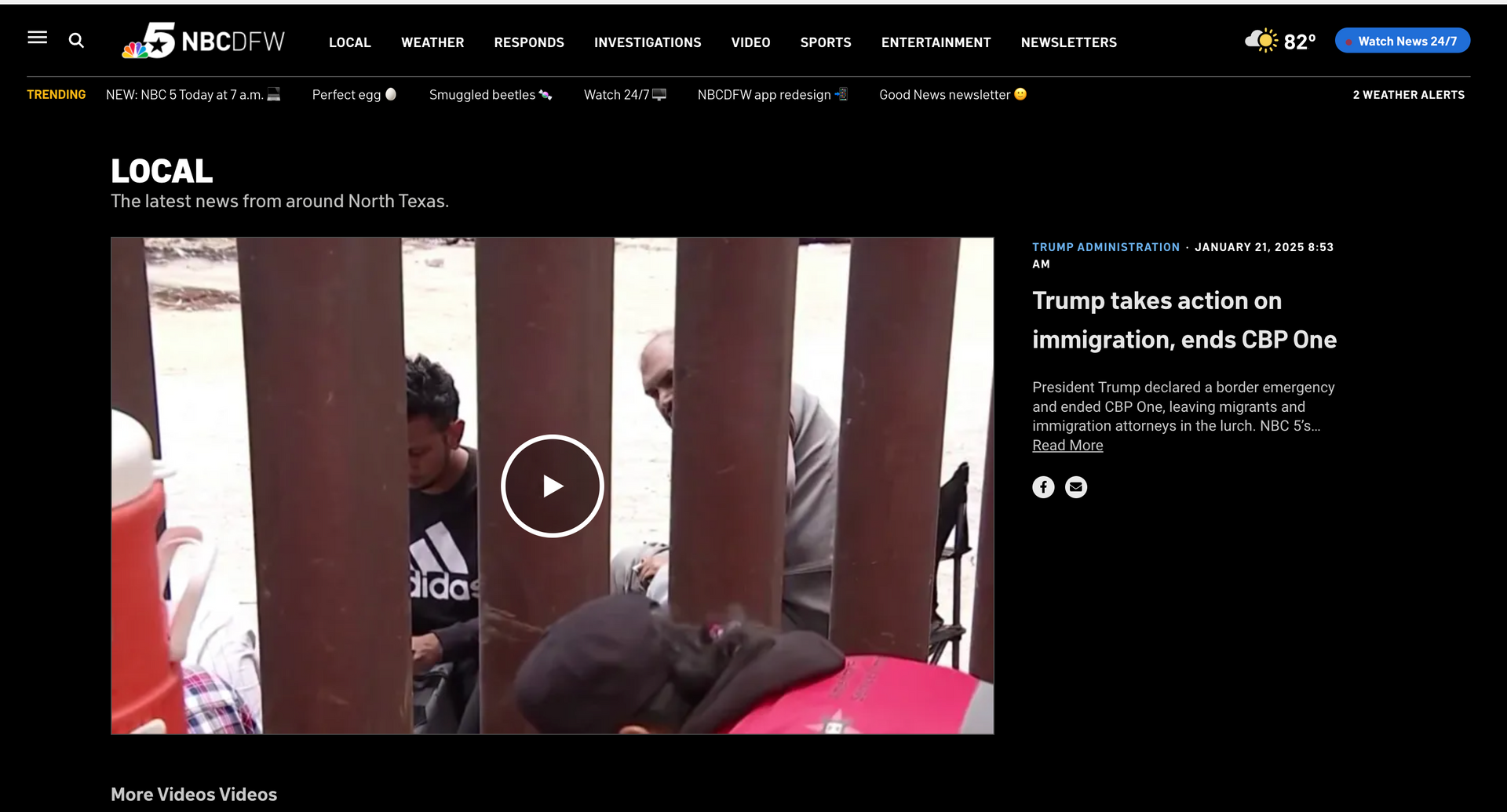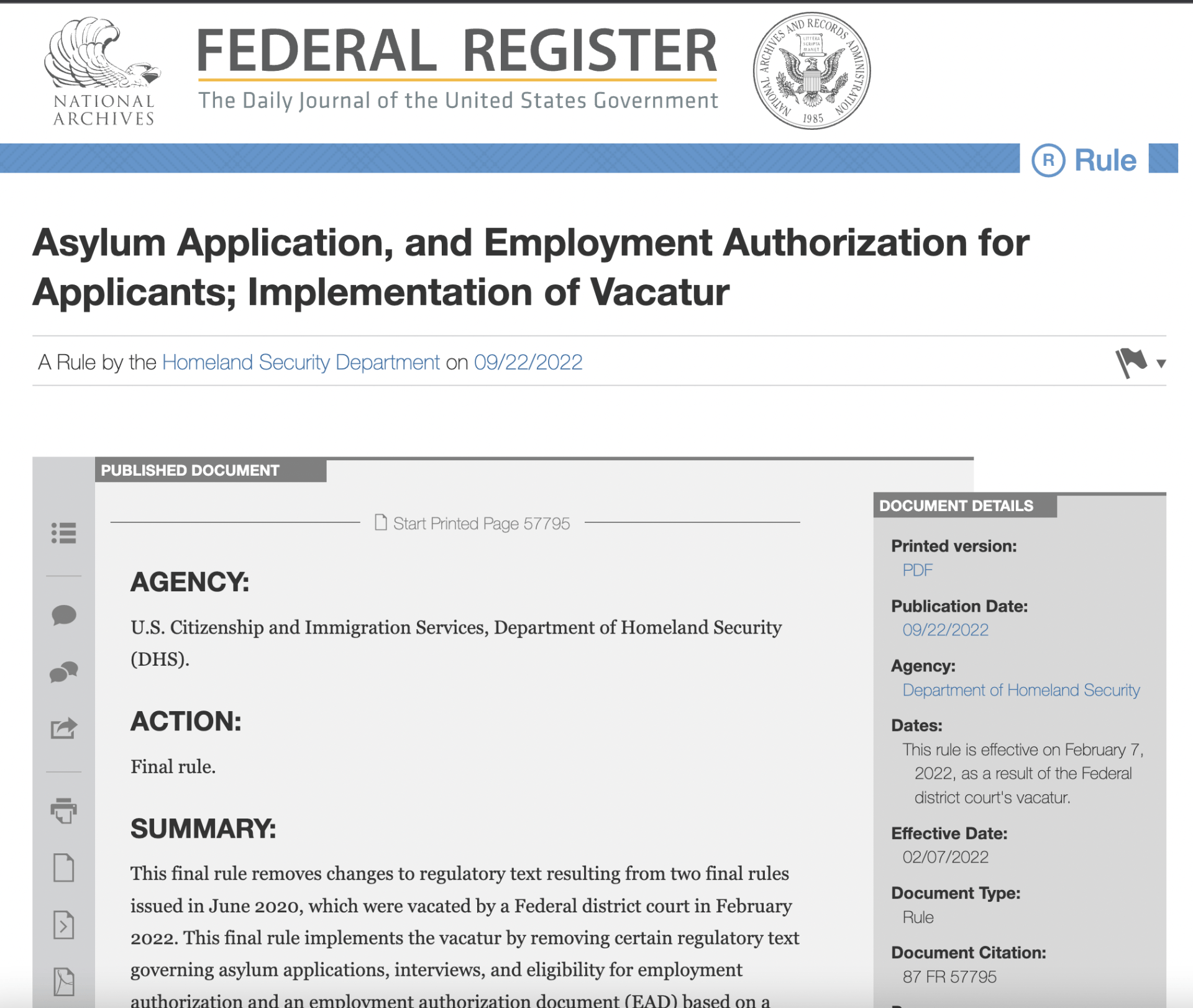Summary: What is Happening with the DHS Enforcement Priorities?
From the Immigrant Legal Resource Center
What is Happening with the DHS Enforcement Priorities?
On August 19, a federal court in Texas issued a nationwide preliminary injunction in Texas v. United States, after a lawsuit was filed by the states of Texas and Louisiana in an effort to force the government back into Trump-era immigration tactics to detain and deport people en masse by making everyone a priority. The preliminary injunction had temporarily stopped the Department of Homeland Security (DHS) from using the interim enforcement priority guidelines outlined in the January 20th “Pekoske Memo” and the guidance fleshed out in Immigration and Customs Enforcement’s (ICE) February 18th “Johnson Memo.” The Texas court had ordered DHS to stop all implementation of these memos.
Together, these memos had created three categories of people to be prioritized for enforcement-related actions if they were deemed to be either a 1) national security, 2) border security, or 3) public safety threat. If a person fell outside of these categories, ICE officers were directed to use prosecutorial discretion to avoid taking enforcement action to issue detainers, make immigration arrests, initiate removal proceedings, detain or release someone, execute removal orders, or similar actions. In addition, ICE’s Office of the Principal Legal Advisor (the ICE attorneys who prosecute cases in immigration court) issued a memo on how ICE attorneys should exercise prosecutorial discretion under the interim priorities in the context of removal proceedings.
On August 23, the judge issued a clarifying order and stayed (suspended) the decision for one week to allow the federal government to appeal. On August 25, the Fifth Circuit temporarily stayed the injunction until further notice.
Other states, including Florida and Arizona, had previously filed lawsuits challenging the enforcement priorities guidance as well. In those cases, the judges at the federal district court level held that the DHS enforcement priorities guidance was lawful. Those lawsuits remain pending before the 11th and 9th circuits.
This means that for now, the Enforcement Priorities are still in effect, although a change could come within the next few weeks.
TAKEAWAY: As of August 26, the injunction is stayed (suspended) and the Enforcement Priorities are still in effect. Advocates and practitioners can and should continue pursuing prosecutorial discretion and challenging ICE decisions via the ICE case review process or in immigration court and via advocacy with local ICE field offices based on the Pekoske, Johnson, and OPLA memos.
What is Prosecutorial Discretion and What does it Mean Moving Forward?
Prosecutorial discretion refers to the decision of whether or not to arrest, detain, or deport someone (among other enforcement actions), and is an inherent power that has been used by ICE for decades. In other words, DHS is not required to arrest/detain/try to deport every removable noncitizen, and they frequently exercise discretion regarding whom they target and whom they do not.
In the August 23 order, the Texas court clarified that the decision did not require the prosecution, removal, or detention of any person. This means that if the enforcement priorities outlined in the Pekoske or Johnson memos are taken away at a later date, ICE still retains the ability to use their general prosecutorial discretion in individual cases. Meanwhile, because the Fifth Circuit has temporarily stayed the injunction, DHS should continue to follow these memos for now. But it remains to be seen what further guidance DHS may provide to ICE field offices. The preliminary injunction also does not affect the authority of immigration judges.
The Administration had originally announced that they would issue final enforcement priorities in April, although this timeline was pushed back to late August or September. It seems unlikely that the administration will now come out with new priorities until the litigation has been resolved. However, on August 11, ICE issued new policy guidance about prosecutorial discretion for people who are victims of crimes. Because this policy was not based on the Pekoske and Johnson memos enjoined by the court, we believe this policy is unaffected by the injunction.








